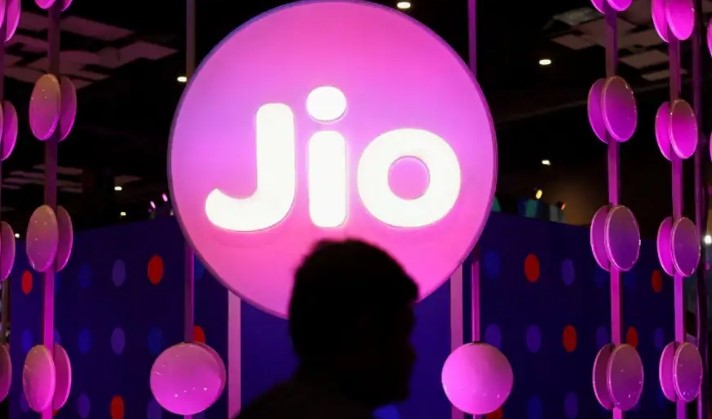Jio’s Bidding Strategy Crucial for 5G Auction Revenue
Reliance Jio’s approach in the 5G spectrum auction, starting Tuesday, will significantly influence the government’s revenue, potentially fetching only Rs 14,000 crore if Jio bids conservatively. The total spectrum on offer is valued at Rs 96,000 crore. Aggressive bidding could raise Rs 32,000 crore. Jio’s earnest money deposit is Rs 3,000 crore, far exceeding Bharti Airtel’s Rs 1,050 crore and Vodafone Idea’s Rs 300 crore, highlighting Jio’s dominant position.
Source: Financial Express
Government Imposes Wheat Stock Holding Limits to Curb Hoarding
To stabilize prices and prevent hoarding, the government has set stock holding limits on wheat: 3,000 tonnes for wholesalers, 10 tonnes per outlet for retailers, and 70% of monthly capacity for processors. Food Secretary Sanjeev Chopra assures there is no wheat shortage, with production up by 4-5 million tonnes from last year. The export ban remains, aiming to keep wheat prices stable amidst rising commodity prices.
Source: Financial Express
India Posts $5.7 Billion Current Account Surplus in Q4 FY24
India reported a $5.7 billion current account surplus (0.6% of GDP) for Q4 FY24, ending a 10-quarter deficit streak, fueled by robust services exports. The FY24 current account deficit narrowed significantly to $23.2 billion (0.7% of GDP) from $67 billion in FY23. The surplus was driven by a lower merchandise trade deficit and higher net services receipts. Forex reserves saw a notable accretion of $30.8 billion in Q4 FY24.
Source: Business Standard
Meta AI Debuts in India on WhatsApp, Instagram, and Facebook
Meta has launched its AI chatbot, Meta AI, for users in India on Instagram, Facebook, and WhatsApp. Competing with ChatGPT, Copilot, and Gemini, Meta AI, based on Llama 3, is currently available in English. Users can ask queries, plan events, or generate images using the “/imagine” command. Images will feature a “With AI Imagined” watermark. Accessible via a blue hollow circle in apps, Meta AI enhances user interaction and content discovery.
Source: Business Today
India’s CAD Drops to 0.7% of GDP, Achieves Q4 Surplus of 0.6%
India’s Current Account Deficit (CAD) decreased significantly to 0.7% of GDP ($23.2 billion) in FY24 from 2% ($67 billion) the previous year. In Q4, India recorded a $5.7 billion surplus due to higher services exports, contrasting with a $1.3 billion deficit a year ago. Net services receipts rose to $42.7 billion, while merchandise trade deficit narrowed to $50.9 billion. However, rising crude oil prices may impact future CAD.
Source: Mint
Mustard Prices Surge Above MSP After Government Purchases
Mustard prices in key Indian mandis have surged above the Minimum Support Price (MSP) of ₹5,650/quintal, driven by government procurement. Agencies like Nafed and NCCF purchased 1.12 million tonnes of mustard under the Price Support Scheme. Major procurement occurred in Madhya Pradesh (0.36 MT), Haryana (0.32 MT), and Rajasthan (0.34 MT). This intervention has stabilized prices, which had been below MSP due to increased edible oil imports and reduced global prices.
Source: Financial Express
Telecom Department to Begin ₹96,318 Crore Spectrum Auction
The Department of Telecommunications (DoT) will auction ₹96,317.65 crore worth of spectrum on Tuesday. With telecom operators depositing the lowest earnest money in six auction rounds, focus will be on renewals. Major operators—Reliance Jio, Bharti Airtel, and Vodafone Idea—deposited ₹4,350 crore as EMD. Analysts expect muted auctions due to low demand and strategic bidding. Available spectrum includes key bands like 800 MHz, 900 MHz, and 1800 MHz.
Source: Business Standard
Noida Airport Delays Commercial Flights to April 2025
Noida International Airport has postponed the start of commercial flight operations to April 2025, from the initial target of December 2024. Despite construction being at an advanced stage, the complex nature of the project necessitates additional time. The airport will open with one runway and terminal, handling 12 million passengers, and aims to be India’s first net zero emissions airport. Collaboration with Tata Projects Limited continues to ensure timely completion.
Source: Business Today
RCap Lenders Demand Hinduja Group to Secure Equity in Escrow for Extension
The Committee of Creditors (CoC) of Reliance Capital (RCap) insists that the Hinduja Group deposit the equity component of their bid in an escrow account before any extension to the resolution deadline is granted. The Hinduja Group, having requested a 90-day extension beyond the initial May 27 deadline, faces stipulations that include interest rates equivalent to financing costs and potential forfeiture of bank guarantees if further delays occur.
Source: Financial Express
Quant Mutual Fund Needs Up to 28 Days to Liquidate Portfolio
Quant Mutual Fund’s stress test revealed it would take 28 days to liquidate 50% of its small-cap portfolio and 14 days for 25%. The mid-cap fund requires 9 days to liquidate 50% and 5 days for 25%. Currently under SEBI investigation for alleged front-running, the fund house faces scrutiny, yet industry experts suggest this is unlikely to impact mutual fund investors’ security or fund performance.
Source: Live Mint
Digital Competition Bill Could Transform User Experience for Major Indian Start-ups
The draft Digital Competition Bill (DCB) aims to classify Systemically Significant Data Enterprises (SSDE) based on financial and user thresholds. This could impact 13 out of 23 major digital enterprises in India, including Zomato, Swiggy, and Paytm. SSDEs will face stringent regulations, potentially complicating user experiences by requiring manual data entry and unbundled services. Users might also experience “consent fatigue” from constant approval requests.
Source: Financial Express
Prosus Writes Off $493M Investment in Byju’s Amid Plummeting Valuation
Tech investor Prosus NV has fully written off its 9.6% stake in Byju’s, recognizing a fair value loss of $493 million for FY 2024. Byju’s, once valued at $22 billion, has seen its valuation drop below $3 billion due to financial, legal, and operational issues. Earlier this year, Prosus and other shareholders called for a leadership change to stabilize the troubled Indian edtech startup.
Source: Reuters


Leave a Reply